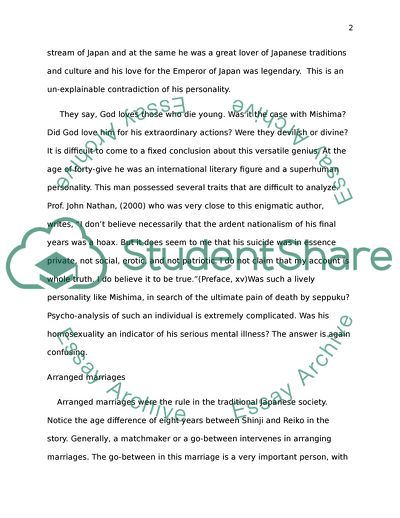Cite this document
(Yukio Mishima's Patriotism and Other Literary Masterpieces Book Report/Review, n.d.)
Yukio Mishima's Patriotism and Other Literary Masterpieces Book Report/Review. Retrieved from https://studentshare.org/literature/1739738-world-lit-report-yukio-mishimas-patriotism
Yukio Mishima's Patriotism and Other Literary Masterpieces Book Report/Review. Retrieved from https://studentshare.org/literature/1739738-world-lit-report-yukio-mishimas-patriotism
(Yukio Mishima'S Patriotism and Other Literary Masterpieces Book Report/Review)
Yukio Mishima'S Patriotism and Other Literary Masterpieces Book Report/Review. https://studentshare.org/literature/1739738-world-lit-report-yukio-mishimas-patriotism.
Yukio Mishima'S Patriotism and Other Literary Masterpieces Book Report/Review. https://studentshare.org/literature/1739738-world-lit-report-yukio-mishimas-patriotism.
“Yukio Mishima'S Patriotism and Other Literary Masterpieces Book Report/Review”, n.d. https://studentshare.org/literature/1739738-world-lit-report-yukio-mishimas-patriotism.


